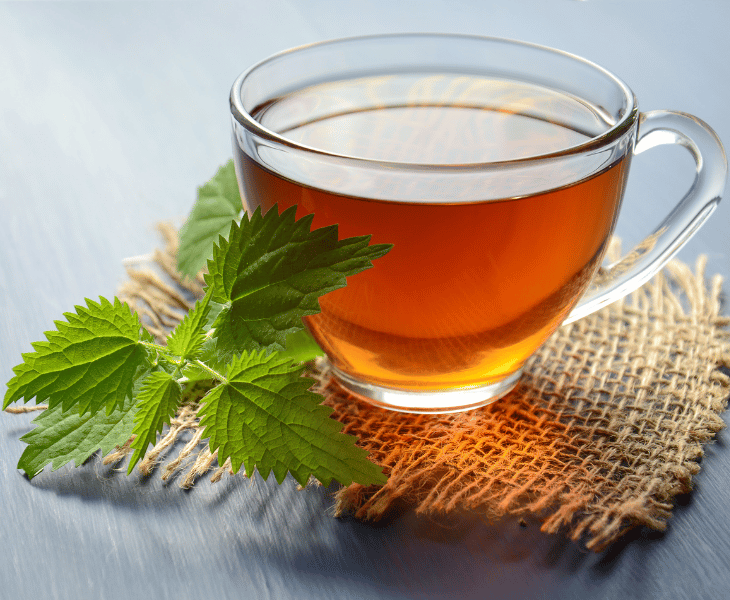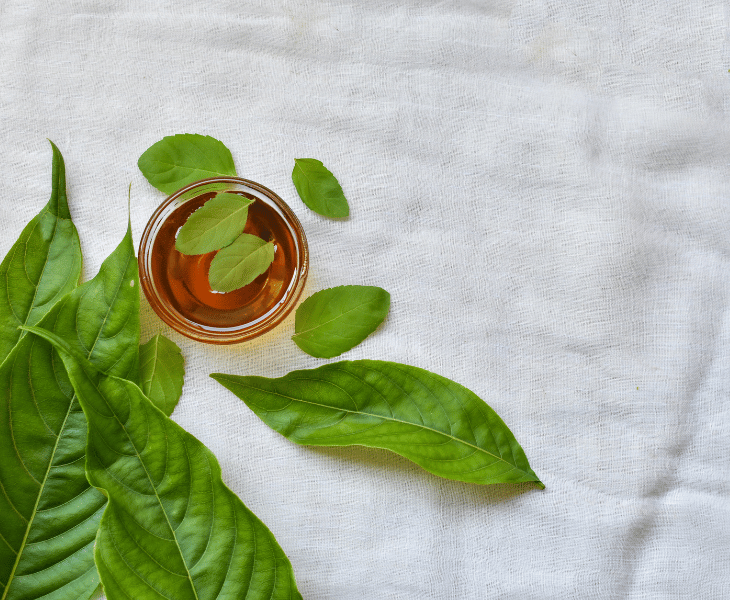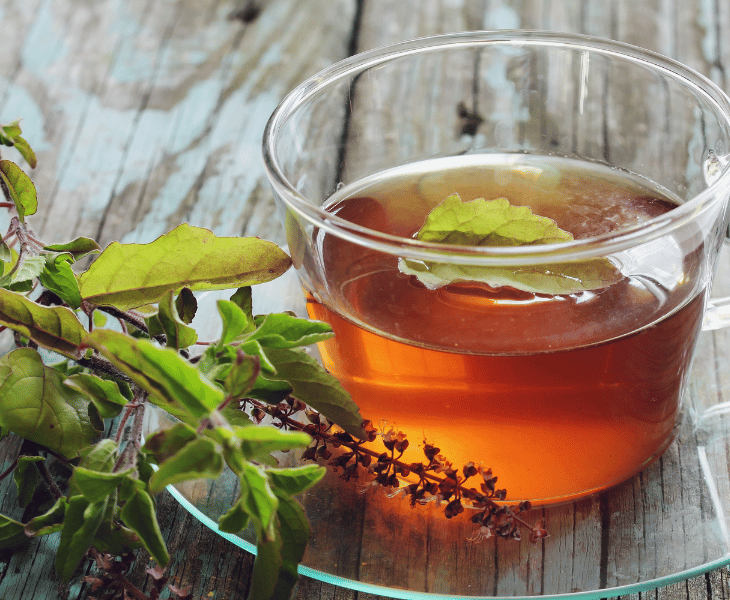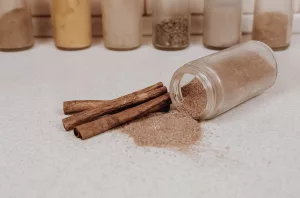Why Tulsi Tea is a Winter Must-Have
Did you know that Tulsi, also known as Holy Basil, is revered as the “Queen of Herbs” in Ayurveda? This miraculous herb has been a staple in traditional medicine for centuries, offering a natural shield against colds and flu.
Tulsi Tea, made from the leaves of the Tulsi plant, is not just a comforting beverage but also a potent remedy for winter ailments. Let’s dive deep into the health benefits of Tulsi Tea and why it deserves a permanent spot in your wellness routine.
What is Tulsi Tea?
A Brief History of Tulsi
Tulsi, or Ocimum sanctum, is native to India and holds a sacred place in Indian households. Often planted in courtyards and worshipped for its spiritual and medicinal properties, Tulsi is believed to bring positive energy and purify the air. For over 3,000 years, it has been used in Ayurvedic medicine to treat a range of conditions, from respiratory issues to stress. Learn more about Tulsi’s history and uses on NCBI.
What is Tulsi Tea Good For?

Tulsi Tea is packed with health-promoting nutrients and compounds:
- Rich in Antioxidants: Compounds like rosmarinic acid and flavonoids protect cells from oxidative stress. Learn about these compounds on Healthline.
- Packed with Essential Oils: Eugenol, camphene, and cineole provide anti-inflammatory and antimicrobial properties.
- Natural Detoxifier: Helps cleanse the body by promoting liver function and flushing out toxins.
Benefits of Tulsi Tea for Fighting Colds
When it comes to combating colds and flu, Tulsi Tea shines as a natural remedy. Here’s how:
Boosts Immunity
Tulsi is rich in vitamin C, zinc, and other antioxidants that enhance the body’s defense mechanisms. Regular consumption of Tulsi Tea can strengthen your immune system, making you less susceptible to infections. For scientific insights, check WebMD.
Relieves Congestion
The essential oils in Tulsi act as natural decongestants. They help loosen mucus and make it easier to breathe, providing quick relief from nasal and chest congestion.
Soothes a Sore Throat
Warm Tulsi Tea is an excellent remedy for a sore throat. Its anti-inflammatory compounds reduce irritation, while its antimicrobial properties combat infection.
Fights Viral Infections
Tulsi has antiviral properties that inhibit the growth of common cold and flu viruses. This makes it a preventive measure and a treatment option for viral infections. Read more about antiviral herbs on Medical News Today.
How to Make Organic Tulsi Tea at Home

Making Tulsi Tea is a simple and rewarding process. Here’s a step-by-step guide:
Ingredients You’ll Need
- Fresh or dried Tulsi leaves (1 tablespoon)
- Water (2 cups)
- Optional: Honey, ginger, or lemon for added flavor and benefits
Simple Instructions
- Boil water in a saucepan.
- Add the Tulsi leaves to the boiling water.
- Let it simmer for 5-10 minutes to allow the flavors and nutrients to infuse.
- Strain the tea into a cup.
- Add honey, ginger, or lemon if desired.
- Enjoy your warm cup of wellness!
Pro Tip: Make Tulsi Tea in Bulk
Brew a larger batch and store it in the refrigerator. You can reheat it as needed or enjoy it as a refreshing iced tea. Find more tea recipes on Taste of Home.
Tulsi Tea Health Benefits Beyond Colds
While its ability to combat colds is remarkable, Tulsi Tea offers a host of other health benefits:
Reduces Stress and Anxiety
Tulsi is an adaptogen, a natural substance that helps the body adapt to stress. Drinking Tulsi Tea can lower cortisol levels, promoting a sense of calm and relaxation. Learn about adaptogens on Cleveland Clinic.
Supports Digestive Health
Sipping Tulsi Tea after meals can aid digestion by stimulating the secretion of digestive enzymes. It also helps alleviate bloating and gas.
Enhances Respiratory Function
Tulsi Tea is a boon for those with respiratory issues. Its anti-inflammatory and antimicrobial properties help clear airways and improve lung health, making it particularly beneficial in cold weather.
Promotes Heart Health
Tulsi’s antioxidants and anti-inflammatory properties contribute to better cardiovascular health. Regular consumption can help reduce bad cholesterol and regulate blood pressure. Read more on Harvard Health.

Helps in Weight Management
Drinking Tulsi Tea can boost metabolism and aid in weight management. Its ability to reduce stress-induced eating is an added bonus. Learn more about metabolism-boosting teas on Everyday Health.
When and How to Drink Tulsi Tea for Best Results
Ideal Timing
- Morning: Start your day with a cup of Tulsi Tea to awaken your senses and boost your immunity.
- Afternoon: Enjoy it as a mid-day pick-me-up to combat fatigue.
- Evening: Wind down with a soothing cup to relax your body and mind before bedtime.
Recommended Dosage
Two to three cups of Tulsi Tea daily are sufficient to reap its health benefits. However, moderation is key, as excessive consumption may lead to mild side effects.
Combining with Other Herbs
Enhance the benefits of Tulsi Tea by pairing it with other herbs like ginger, mint, or chamomile. This not only diversifies the flavors but also amplifies its therapeutic effects. For more on herbal combinations, visit Herbal Academy.
Precautions to Consider
Possible Side Effects
While Tulsi Tea is generally safe for most people, overconsumption can lead to mild issues such as:
- Upset stomach
- Lowered blood sugar levels (important for those on diabetic medication)
- Slight blood-thinning effects
Who Should Avoid Tulsi?
- Pregnant or breastfeeding women should consult a healthcare provider before consuming Tulsi Tea.
- Individuals on blood-thinning or anti-diabetic medications should seek medical advice to avoid potential interactions.
The Bottom Line: Embrace the Healing Power of Tulsi Tea
Tulsi Tea is more than just a beverage; it’s a holistic remedy that nurtures your body and mind. Whether you’re battling a cold, seeking to reduce stress, or aiming to improve your overall health, this herbal tea is a must-try. Its versatility, ease of preparation, and myriad benefits make it an indispensable part of a healthy lifestyle. Discover more on herbal remedies at Mayo Clinic.
Ready to harness the wonders of Tulsi Tea? Brew yourself a cup today and share your experience in the comments below. Have a favorite Tulsi Tea recipe or an inspiring health journey? We’d love to hear from you! For more health tips and herbal remedies, explore The Planttube Blog.
Disclaimer: The following information is provided solely for informational purposes and should not be considered professional advice or a substitute for professional consultation. While every effort has been made to ensure the accuracy and reliability of the information presented, we make no representations or warranties of any kind, express or implied, regarding the completeness, accuracy, reliability, suitability, or availability of the information provided. Any reliance you place on such details is strictly at your own risk.








